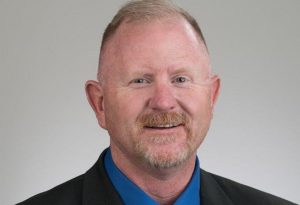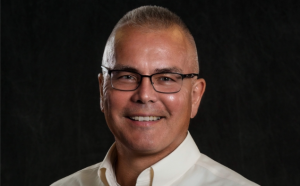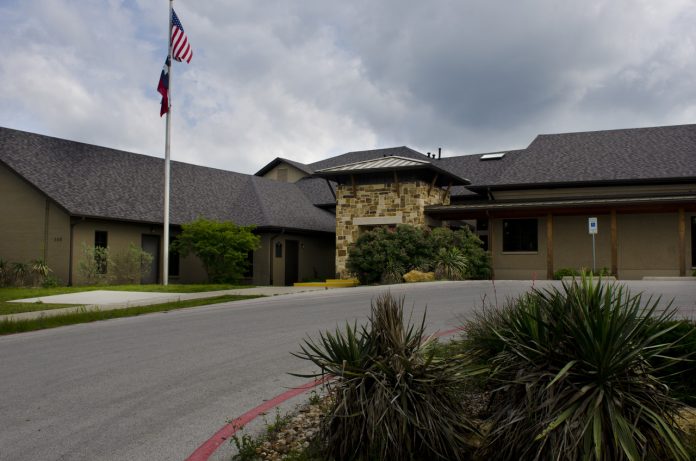
A dispute between the current and former mayors of Argyle over the mayor’s email address went fully public Monday night during the Argyle Town Council meeting.
Former Mayor Don Moser resigned for health reasons in 2020 — he said Monday he’s doing better now — and Bryan Livingston was appointed to replace him.
On March 7, 2022, Moser went to Argyle Town Hall for an interview with the Town Council for a position on the Municipal Development District Board, and he was surprised when Livingston began the interview by accusing him of using the mayor@argyletx.com email address long after he stepped down.
“I was floored,” Moser said. “I didn’t know anything about it.”

The accusation was also news to the rest of the council. Livingston then claimed to have proof, saying it would be made public soon, Moser said.
“He was very accusing, very unprofessional about it,” Moser said.
Councilmen Ronald Schmidt and Rick Bradford objected to the line of questioning and walked out, they said, and Livingston began asking standard questions for candidates for the MDD position. Moser was later appointed to the board.
The email issue arose, according to town documents, on Feb. 25 when Dianne Edmondson, Denton County Commissioner for Precinct 4, told Livingston that Moser was still receiving and responding to emails sent to mayor@argyletx.com. Town staff alerted Fulcrum Group, the town’s IT service provider, which began investigating and an engineer identified that there was still an email “alias” associated with Moser and the mayor@argyletx.com address, and he was removed from the system. Livingston mistakenly believed that email from Fulcrum on March 2 confirmed that Moser was using the mayor’s email address. As Fulcrum conducted a forensic audit, Town Administrator Rich Olson said in an email to council that “based on the outcome of” Fulcrum’s forensic audit, “a criminal referral may be made. It is too early to know.”
On March 9, two days after Livingston accused Moser in front of the council, Fulcrum reported its audit findings, having determined that the “alias” was a proxy address left over from before the town switched email servers and it “was misinterpreted as evidence” that “Moser still had access to the mayor@argyletx.com email account, which is not true or fact … This proxy address would in no way have allowed Don Moser to access the mayor@argyletx.com email account.”
“We have found no evidence that the alias is relevant to this discussion,” said an email from Fulcrum’s Ryan Young on March 30. “That information should not have been interpreted as evidence that Don Moser still had access to the mayor@argyletx.com account in any way.”
Fulcrum Group found no evidence that anyone other than Livingston has attempted to log in to the email address. In the 30 days before March 9, there were no email messages sent from Edmondson’s email address to mayor@argyletx.com.
“My only conclusion was that Dianne Edmondson must have sent the emails to someone else by mistake,” Young said.
Livingston said he called Moser a couple times to try to apologize for accusing him. Moser called back once, but they did not connect. A staff report on the email issue was added to Monday’s Town Council agenda, and Moser attended and asked for a public apology from Livingston.
“The town did make a mistake,” Livingston said. “The IT department made a grievous error and badly served the town … I offer you an apology for the error that was made, from me and from the town.”
Moser said he’ll accept the apology, but he questioned whether Livingston and Olson should remain in their positions.
Later in the meeting, Livingston read a longer prepared statement, fully pinning the blame on Fulcrum and the wording of their initial email. Livingston said he chose to ask Moser about the email issue during the MDD interview because it was a closed session and he “intended to protect (Moser’s) reputation.” Livingston also said the publication of information about the incident is intended to influence public opinion and to punish town staff and himself.

Schmidt, who aligned closely with Moser often when they served together and himself has been at the center of some interpersonal issues between Argyle leaders and staff members, said Livingston’s accusation during the MDD interview “was the most vicious, heinous, despicable act I’ve ever witnessed.” Schmidt also accused Livingston of trying to use the email issue as an opportunity to embarrass Moser.
“I cannot be associated with someone that has so little respect for ethics and morals,” Schmidt said of Livingston. “The things that are being done now, just unacceptable for a town like this.”
Council member Joan Delashaw said she wasn’t satisfied with the report until they can get to the bottom of what emails Edmondson saw and what made her think Moser was using the mayor’s email address, even though other council members accepted the fact that it would have been impossible for Moser to use the account because (in part) passwords have been changed and the email server was changed since he resigned. Livingston agreed with Delashaw that they should talk to Edmondson more about the emails.
A heated exchange between Bradford and Olson occurred after Olson went over the timeline and posed a question.
“The first incident was on Feb. 25 … Mayor Moser was accused on March 7 and then findings were turned in on March 9,” Bradford said. “Don’t you usually get all the evidence before making an accusation?”
“Councilman, don’t look at me, I did not make any accusation whatsoever,” Olson responded quickly. “If you have an issue, you talk to the mayor about it. Staff was just doing what we were requested to do, and you know that.”
Schmidt and Bradford each said there have been other issues with Livingston in closed session that the public doesn’t know about.
“We have had more executive sessions in the last year than probably the last five combined,” Bradford said, calling some of those sessions “tongue-lashings” from Livingston.
Bradford also said all council members should have been alerted sooner that there may have been a serious email breach, if that’s what staff thought it was. Council member Cyndi Hermann and Bradford offered apologies to Moser during the meeting. Schmidt said he thought it was time to look for a new IT service provider, and Livingston agreed.

















